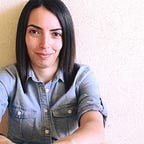How to Put Yourself at the Center of Your Personal Statement
I was getting ready to hop the commuter train home from work and I could not stop thinking about a personal statement I was editing for a graduate student. This applicant was accomplished by all objective measures — and yet — the language throughout her personal statement was subtly, but consistently, disempowering. Her sentences kept turning over and over again in my mind: I was able to, I was given the opportunity to, I was being trained in. She was not only selling herself short but she was continuously decentering herself when the very point of a personal statement is to center yourself (and yes, it is possible do this without being a pompous and boisterous a$$).
As I stood there on the platform waiting for the train, I tweeted a quick thread, figuring the information might be useful to others. To my surprise, my phone blew up the entire train ride home from work — and that’s when I realized this was not a problem unique to one junior scientist in my lab.
There is nothing wrong with the passive voice — just don’t use it in a personal statement when describing yourself or your accomplishments.
The debate about what voice (active versus passive) is more appropriate in scientific writing is long-standing. Redwood Ink provides a wonderful summary of the strengths and limitations of each voice. I recommend reading the post as a guide to help you determine which voice to choose in your scientific writing (particularly for the write-up of scientific manuscripts). When it comes to personal statements, however, I cannot think of a single reason why you would choose to describe yourself or your accomplishments in passive voice.
In a document where you are explicitly being asked to advocate for yourself, the passive voice comes across as hesitant and unconfident. Why should the selection committee fund your application if you don’t believe in yourself as a researcher? If you believe that you are only where you are in your career because someone kindly bequeathed you with the honor of an opportunity?
You made choices about what classes to sign up for, what summer programs to apply to, what labs to volunteer in based on your personal interests and goals. You did the work necessary to get yourself to where you are today. Now is the time to tell the selection committee about it.
Choosing to use the active voice in your personal statement is not about bragging, it’s about owning your accomplishments.
A common question that arises when I share this writing advice with others: won’t writing in this way come across as self-important and aggressive?
First of all: let’s all acknowledge that (usually) it’s not the Chads and Brads of the world who are worried about their tone. Often, it’s the marginalized students who are accustomed to policing their own tone, the individuals who do not take their educational opportunities for granted, the women working in male-dominated fields, who are most concerned with how they might come across when writing about their accomplishments. They play it safe because their place in science is not a guarantee. They shrink. They undersell. They credit others for their successes rather than celebrating the fact that they earned their way to where they are, often despite the systemic barriers they’ve had to overcome.
Secondly, making claims of fact is not bragging, it’s simply acknowledging the truth. Did you or did you not mentor that student? Did you or did you not develop that machine learning model? Did you or did you not initiate a collaboration with a neighboring lab in order to move your project forward?
I suspect that at least part of the reason academics hide behind the passive voice is because they are so accustomed to hedging their scientific claims in manuscripts (i.e. as a scientist you’re likely familiar with qualifiers like: in principle, putatively, presumably, etc). Writing about your science accurately is critical, but the choices you make in a scientific manuscript are not the same choices you should make in a personal statement. You won’t sound any less professional if you use the active voice. In fact, many scientific journals now prefer it (see, for example, Nature’s guidelines here).
Finally, confidence and humility are not mutually exclusive. This is not an either or proposition. It’s a yes and proposition. You can be proud of your accomplishments and be grateful to the mentors who really mentored you, the programs that really contributed to your growth, the teachers who inspired you. Show up at the blank page with courage and tell your story clearly, giving credit where credit is due.
Step into your power, armed with active verbs.
Listen. The academic life is hard enough. You’re out there constantly trying to prove your worth as a scholar. The entire system is built on evaluation and peer-review. It’s not an easy path but if it’s the path you chose, there is no need to shrink yourself in the process. Most especially not in the face of the all-too-pervasive toxic academic systems that breed imposter syndrome. What academia needs more of: creative thinkers and researchers who stand behind their ideas and their work. Do not write about yourself passively. Step into your power, armed with active verbs.
I developed. I created. I discovered. I mentored. I wrote. I collaborated. I pursued. I earned. Some before and after examples below:
Your writing is a reflection of how you think about yourself and your work. Own it.
Caveat: the advice in this article pertains to the English language only. This advice may not translate to other languages and cultural norms.
If you need an editor who will cheerlead you all the way to the final draft of that personal statement, you can get in touch with me via email: coachanahita at gmail dot com.
